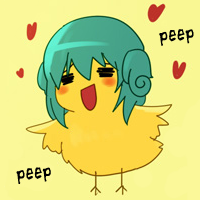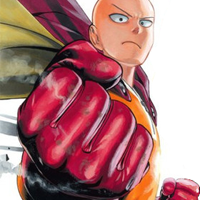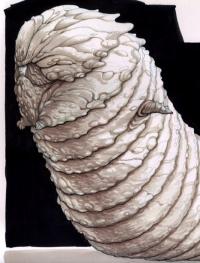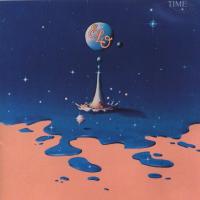My favorite 3 series are Tower of God, Black Lagoon, and Kubera, in that order, although I swear ToG (and Kubera I guess) I will hate with a burning passion for all of eternity if the author gives me a reveal of a mediocre grand secret. (Black Lagoon I like mostly for completely different reasons, but the last two big arcs, Fujiyama Gangsta Paradise and El Baile de la Muerte, were right up there with the other two in plot/emotional complexity... with some allowance for freaking ridiculous and unnecessary minor details (like cutting a bullet with a sword, wtf it was a good scene without it, and please don't ever drive a boat off a ramp into a helicopter again).) I also like Cheese, about as much as I like Sing Yesterday For Me, but I usually never relate to the characters in relationship stories because I would always act so differently if it was me (true with other stories, too, but not as important, since the plot is not being driven by the characters as much usually). Objectively, though, Cheese is about as good as my favorites, too.
But anyway, I basically made this thread for the sole purpose of talking about Kubera and Tower of God (^^), so I'll do that finally.
First of all, let me burst my fellow ToG fans' bubbles a bit here. ToG is not some master anti-shounen genius work that descended from the heavens to spit in the face of stereotypical action comics. It is SUUUPER shounen. That doesn't mean it's bad. It's just that if you can think of a shounen trope, ToG has it plus Jesus. It's just that ToG is also original, and pulls off the shounen staples the way it's supposed to.
Kubera is a little strange to categorize, so I'm not going to try. Although, not being able to categorize a work is, to some people, a great achievement.
ToG is driven by mystery; if we knew what the hell Baam was, we wouldn't care. Admit it. I'd still read it, but I wouldn't refresh Naver from 7:55 to 8:15 every Sunday. The action isn't why we read it.
Kubera is also driven by mystery, but the way they're driven is different. While ToG slowly reveals the truth by having the gang enter into perilous situations and figure it out, Kubera reveals itself through an odd mix of flashbacks and foreshadowing. This is partly due to the fact that master players are main characters in Kubera, and partly to the great teasing Currygom dishes out. As far as originality of storytelling goes, Kubera takes the cake (if you told me about a great story that was told through flashbacks and ambiguous hinting I'd tell you to get lost, but Kubera pulls it off great), but I'm not sure you can put one method over the other, as they require different situations, and both get the job done properly for that story.
The final factor I feel an emotional need to share my observations on is the way action sequences tie in to the plot and the emotions of the characters at the same time. In ToG, the way the Untrustworthy Room arc's game design fit the scenario of Viole taking the test alone vs choosing teammates + 8 people forming a team was clever in itself, and fit Love's hate of FUG; the way people acted towards Viole, and had their (Wangnan's) attitudes changed by necessity was climactic (and coincided with Wangnan interrupting the fight); the way everyone had a different strategy was realistic; the way the main group started to trust each other was endearing, and fit the broader theme (and was caused by the game scenario); did I mention ToG is my favorite comic? It doesn't have much action for action's sake, even in a universe where you need to fight to advance over 100 floors. And yet, when the weapons come out, you can lose yourself in the story and the action at the same time. I love that.
Kubera is similar, although it is difficult to really get into the action, mostly because at least one of the sides is relatively unconcerned with their lives (freaking hax Nastika). This is also why story exposition via dialog can happen in the middle of a life and death struggle. I feel there is less of a connection with battle tactics and plot compared to ToG, but some strategy is present, and there is at least as much connection with the setting, as battle types and abilities are dependent on, among other things, race and congenital factors.
///Addition: As for plot overall, they differ in style of progression. Kubera seems to be one long continuous stream, with few interruptions or climaxes. ToG is more episodic, and the resolution of each arc really brings a feeling of change to the status quo. Kubera seems to be in the same status quo for long stretches at a time; for example, from the beginning of season two to Ch 58, there was no real change in the relationships of the characters, nor any advancing of the plot. They got items, but did nothing with them yet, so the reader was kind of left with the impression that the arc barely mattered. Most of Kubera is not quite like this, however. I feel a little more up and down reading ToG, arc beginning to arc end, than I feel reading Kubera; instead of up and down, I feel a creeping forward, then a sudden twist up, then an orientating small scamper back down and forward faster, then a resuming of the creeping, but at a slightly higher and higher position every 20 or so chapters. If this series can continue this until the climax it will be great, but I really feel that, despite the revelations, season 2 stopped the sudden twists up for awhile.
Thoughts? Without revealing too much, my next post will be a fun statistical analysis. (Yes I did just say that.) I call it: the MRGBR. Stay tuned!
///////////////////////
What makes Kubera different? Several things.
- Setting. Its world is so vast and intricately detailed. I am literally wowed by Currygom's imagination. Unlike so many series out there, the world actually makes sense in terms of logic. Things aren't simply what they are simply because they are; no, there's a logical explanation for it. The magic? It works on a mathematical system. The races? I can write books about their biology. And so on. There's so much, I can't even explain it all without writing a thesis.
I like your post, but how the hell is magic running on thinking about math and races that can breed with humans but not other Sura logical? XD
Edited by themantarays, 19 March 2014 - 12:55 PM.
Oops, spoilers.

 Sign In
Sign In Create Account
Create Account


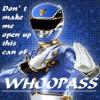


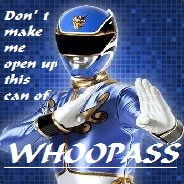
 Back to top
Back to top